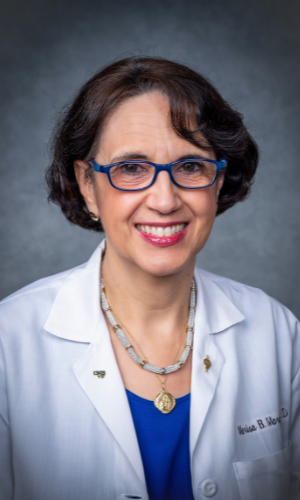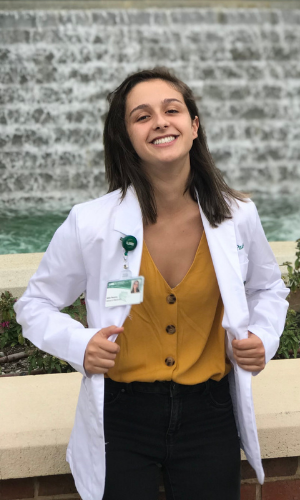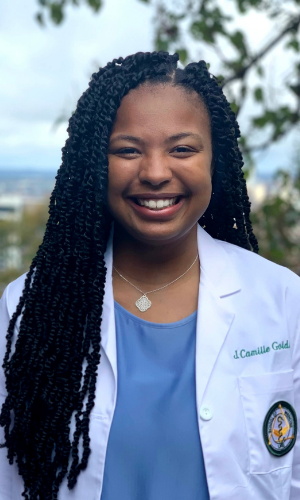For over 100 years, the American Medical Women’s Association (AMWA) has advanced women in medicine. At its inception in 1915, women physicians were underrepresented and in need of an advocacy organization that could foster development at the national level. Throughout the century, the number of women in medicine and science fields has increased significantly.
Dividing itself into committees, AMWA groups began documenting unequal opportunities for women in postgraduate training, hospital internships, academic appointments, scholarships, and papers presented at professional meetings. Through its efforts over the past century, the organization has expanded internationally, formed an incredibly successful ancillary group (War Service Committee, later named American Women’s Hospitals Service), and taken on policy reform.
While overall numbers are trending toward greater representation, the number of women in senior leadership positions has not grown at a proportionate rate. Now, AMWA works to make the fields of medicine and science a Marisa Marques, M.D. more equitable place for all.
Marisa Marques, M.D. more equitable place for all.
To help further this mission, AMWA also operates in medical schools and institutions across the world. There are two chapters at the UAB Heersink School of Medicine—one for students and the other for faculty and staff.
To commemorate Women’s History Month, the Heersink School of Medicine Office for Diversity and Inclusion sat down with leaders of both chapters.
Representing the medical school chapter was Nikki Panzica, MS2, president, and Camille Goldman, MS2, director of mentorship. Also joining the conversation was faculty AMWA chapter President Marisa Marques, M.D., professor in the Department of Pathology and faculty sponsor of the student AMWA chapter.
How long have you been involved with AMWA?
Marques: Around 2008, our medical students were interested in creating an AMWA chapter. So, I was involved in assisting them with fundraising, mentoring, etc. Then in 2015, Lauren Walter, M.D., wanted to bring AMWA to the UAB faculty, and I joined as a member. In the fall of 2019, Mona Fouad, M.D., MPH, asked me to be the next president, which I accepted.
Panzica: Camille and I applied for the position at the same time—as first-year students in medical school. It would be almost a year ago now. Before this position, I hadn’t been exposed much to AMWA due to COVID.
Did the pandemic impact your group? If so, how?
 Nikki Panzica, MS2Marques: Before the pandemic, AMWA would meet in person. We used to spend a while trying to determine the best time and place to meet. Because of locations and schedules, it was challenging to predict attendance. When the pandemic happened, it forced us to try zoom, and we learned our audience preferred this communication channel.
Nikki Panzica, MS2Marques: Before the pandemic, AMWA would meet in person. We used to spend a while trying to determine the best time and place to meet. Because of locations and schedules, it was challenging to predict attendance. When the pandemic happened, it forced us to try zoom, and we learned our audience preferred this communication channel.
Panzica: By the time I was named president last semester, UAB had decided to allow in-person meetings with specific guidelines. Our chapter runs like many student organizations in that we aim to have activities about twice a semester. Following all protocols, we were allowed to meet in person for a lunch and learn panel—once featuring student leaders (MS2s) and the second with a group of physicians.
Goldman: Building the mentorship component of student AMWA wasn’t disrupted by the pandemic. Currently, we have 60 medical school mentors paired with undergraduate students. At the beginning of last semester, I remember thinking that it would be great if we were able to match 10 people. Now, we are working on mentorship connections for medical students with faculty members.
What made you want to get involved with AMWA?
 Camille Goldman, MS2Marques: I like sharing, empowering, and helping connect people. You learn a lot by just living through experiences. As someone who has been at UAB for 28 years, I know the landscape and the people—I want to help pass that down to future generations.
Camille Goldman, MS2Marques: I like sharing, empowering, and helping connect people. You learn a lot by just living through experiences. As someone who has been at UAB for 28 years, I know the landscape and the people—I want to help pass that down to future generations.
Panzica: When I started at UAB, I knew I wanted to join something that focused on minorities or women in medicine because I had enjoyed it so much as an undergraduate student. When I found AMWA, I researched and learned about all the conferences and speakers that the organization hosted. And while that has only happened virtually because of the pandemic, I’ve still been connected with great mentors and networking opportunities that I wouldn’t have had otherwise.
Goldman: I was interested in joining an organization that focused on women empowering women, especially in a traditionally male-dominated field.
Based on your current career stage, what do you think is AMWA’s most significant benefit to its members?
Marques: I believe that when you empower others, it gives you a personal sense of fulfillment. When I started trying to find mentors for the students, I reached out and connected with a lot of women physicians, and there was a handful of people I hadn’t known before—even after all my time at UAB. I was able to tell them about AMWA and invite them to connect and participate in events. Networking is valuable to me at all career stages.
Panzica: Having a network of people willing and able to help guide you.
For example, a few other students and I got to speak at the AMWA undergrad meeting. It was fantastic to hear all the different questions that I remember hearing when I was an attendee, now being asked to me. I just thought to myself, ‘This is great. Now I can help others how I wanted to be helped.’
How does each of your chapters create a more equitable place for women?
Marques: While more women are entering the medical and science fields, those numbers haven’t translated to senior leadership positions. Every AMWA lecture I plan, I approach it by finding topics that can help prepare women for more high-ranking positions. Our AMWA chapter strives to instill courage in women—that they can do the job and are not alone. In addition, I mostly invite UAB women to spotlight. By having UAB speakers, it offers up the opportunity for participants to reach out to lecturers after the session ends.
For example, in our next AMWA session, we will discuss parental leave. Women need to know they don’t have to put their lives on hold out of fear they won’t succeed in their careers. And, the best person to share that perspective is other women who have gone through it and, yet, are also at the top of their field.
Creating an equitable place is a gradual process, but it will happen over time.
Panzica: You have to start somewhere. As the student chapter, we can be one of the first touchpoints students have with a professional network. We need women in medical school and residency to step up because it’s scary to feel like you’re “the first” board or chair member. However, many UAB women aren’t the first, but one of the first. Because that intimidating barrier is removed, our job is to focus on nurturing people along their career journey and helping them create connections.
Goldman: Nikki and I have worked so hard on creating a mentorship program. Some of the most common themes we saw with pre-med and medical student mentorship requests were connecting with people who have families or are in areas with fewer women physicians. Being able to make these connections will help guide us toward equity.
Fill in the blank: “What I think of AMWA, I think of ______?”
Marques: Students and junior faculty members
Panzica: Leadership
Goldman: Mentorship
